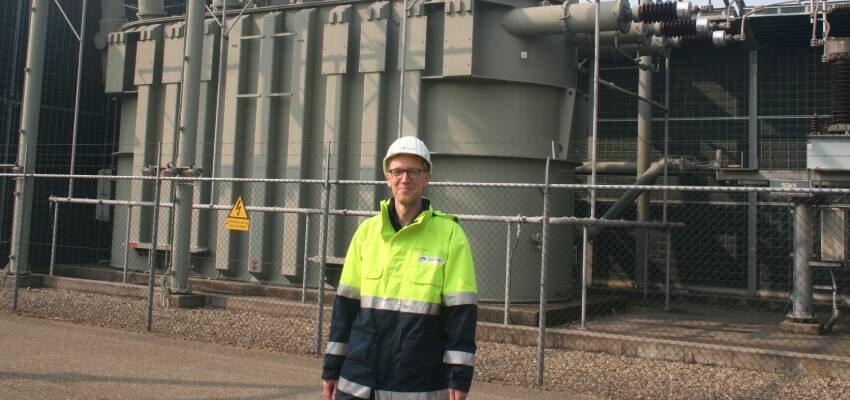
Interview with Stefan van der Kolk, Lead engineer at TenneT
The challenges that utilities face today are the rise of renewables, digitalisation, the increase of pro-sumers, etc.
byTransformers Magazine

The experience of an engineer from a transformer factory gives you a specific advantage in a utility − that you can talk with and relate to several stakeholders in a project. For instance, you can talk with a project manager, and try to explain to him what is going on technically, but you can also talk to transformers suppliers, and challenge them with asking all kinds of difficult questions if need be. You can have a conversation on several levels and that is helpful to get the project going and keep it moving.
When you are buying a transformer and you go to the manufacturer, you know there are three components: your staff (the people making the windings and the core), the materials that you purchase (good quality), and the devices you work with. Putting those together has a great influence on the production. If you have a core-cutting line that is little within tolerance, that is not going to help the manufacturer. Because you would probably have FAT failures, and in the end the customer, the transmission operators, just want a good transformer. So, the manufacturing machines are very important for you as a utility, as a buyer of a transformer.
Reliable electricity
We are all used to having electric power at our fingertips, but next time you turn on the lights, take a moment to think about where that power comes from. In the Netherlands and Germany, it was very likely brought to you by us, TenneT, although you may not even have heard of us. And that is fine, we would rather you noticed having all that electricity at the flick of a switch.
The challenges we face are that power generated by wind or sun cannot be turned on and off as required, nor can electricity be easily stored; another challenge is bringing this energy to the end user
The Netherlands and a significant part of Germany rely on our services 24 hours a day, 7 days a week, 365 days a year. Without us, you could not use your computer, keep your food fresh in the fridge, charge your phone, watch TV, catch the train to work, use the ATM, or even switch on the lights. Not to mention there would be no cars, clothes, or appliances because factories need electricity. Everything that runs on electricity is powered by us. Without electricity, we would struggle to survive in our always-on, connected world. Fortunately, our track record means the lights do not go out. Our service level is as high as 99.99 %. We are one of the best in the world at our job.
TenneT has over 4,900 employees and our corporate headquarters is located in Arnhem, the Netherlands.
The Dutch HV grid is operated at 50 Hz 380 / 220 / 150 / 110 kV, depending on the connection and area in the Netherlands. We own over 23,555 km of high-voltage lines and cables, transporting electricity to 42 million homes and businesses in the Netherlands and Germany.







